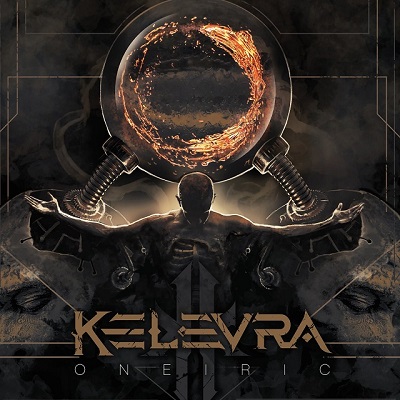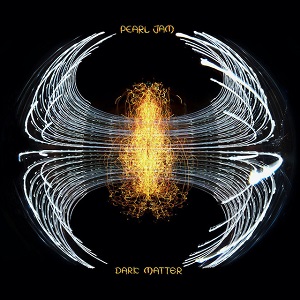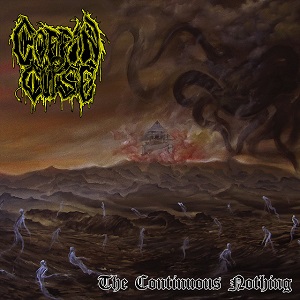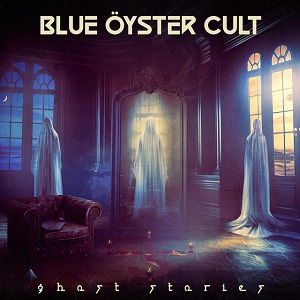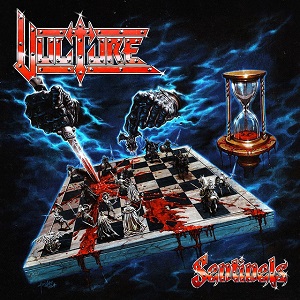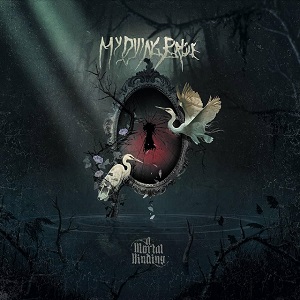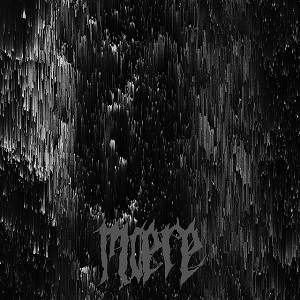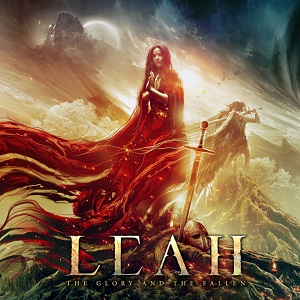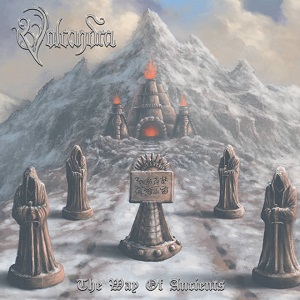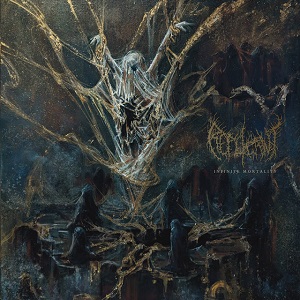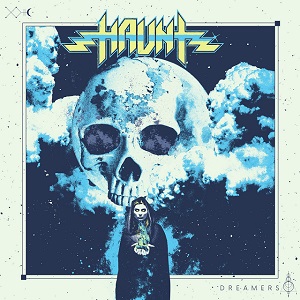ROB HALFORD - The Complete BW&BK Interview
June 26, 2007, 16 years ago
BW&BK;'s Mitch Lafon spoke to The Metal God, ROB HALFORD (JUDAS PRIEST) during the singer’s recent Canadian promo stomp talking about his new Metal God Entertainment company and his latest CD, Metal God Essentials Volume 1 (a Best Of compilation featuring tracks from his HALFORD solo days, his band project FIGHT and a few of new tracks). Here is the entire chat:
Mitch Lafon: Let’s talk Metal God Entertainment. Why did you decide to set up your own label? Also, I noticed it’s ‘Entertainment’ and not Metal Gods Records. Do you plan on releasing more than just CDs and music?
Rob Halford: “I’m glad you picked up on that ‘cause a lot of people missed it. This is a long term project for as many years as I’ve got left in Metal. As a singer, I don’t put a time limit on that. I’ll be doing my live work for as long as the voice holds out and it’s remarkable to think that 36 years later I’m still doing it. But this is just another way of me showing how passionate I am about what I do and the long term goal with Metal God Entertainment is to have a really broad based platform where I’ll bring in other talent and we want to do radio, video, film and TV production and obviously you need a business enterprise to make that real. I’ve been thinking about this for years and years, and with the solo work that started to appear in the early ‘90s and that’s still solid for me – this makes sense and with my being able to get back all of my songs (which is a wonderful thing for any musician to own your own songs and do what you want with them). This is just the launch you know. We put together the first physical CD product with Metal God Essentials and I’m balancing both worlds because I want to be in the forefront of the Internet and technology.”
ML: I noticed that at first it was just an iTunes release.
RH: “Yeah, we went with Apple ITunes. We had an exclusive opening window with those guys while I was setting up Halfordmusic.com – which is the site that is connected to Robhalford.com. So, I’m in both worlds you know and with the Metal community – I’m just trying to give everybody what they need whether it be a download of one track, two tracks or the whole shebang, but there’s still a very strong demand for holding the CD and the booklet and the pictures and the artwork...”
ML: I’m one of those.
RH: “And I am too. I’ve been through it all – vinyl, cassettes, 8-tracks, CDs and now we’re into Blu Ray and all these other incredible things that have come along. Depending on where you’re at – you have to decide to stay with one format or be broad based, but in today’s world you have to be very aggressive and very open-minded and willing to take on all the technologies that comes. I love the Internet. I think it’s a fantastic invention that’s as important as the telephone or television or whatever.”
ML: Absolutely. Now, you mentioned television and radio production. Is it going to be Metal related or are we talking any kind of TV or radio show?
RH: “I would think primarily it would be Metal or Hard Rock because that’s my world and I’m not familiar with these other areas.”
ML: So, there’s no game shows coming....
RH: (laughs) “Why not? How about a Heavy Metal quiz show? Anything is possible as long as it’s related to Metal in some respect. I don’t put any limits. I think once you start closing your vision you miss out on opportunities that might come along.”
ML: Will you be releasing new solo material soon?
RH: “Relatively soon. That’s what we’ve done with these two new tracks – ‘Forgotten Generation’ and ‘Drop Out’. They were the first two new Halford tracks in quite a number of years and I just wanted to send a strong message out there that my solo ventures are still important to me and that I still enjoy that relationship I have with other musicians/ players and I don’t particularly exclude anybody else. I get calls all the time from bands wanting me to produce or step in and make guest appearances which is something that is difficult to do because of time constraints and so forth. So, yeah – there will be a new Halford record at some point – we’ve got an enormous amount of material in the archives already. If that’s the right word... archives. I’m just stock-piling it and waiting for the time to let that go. I have to balance that with what I do with Priest and Priest is obviously the first love of my life. That’s the direction I’ve maintained my career in for over 30 years and that band is absolutely vital to me, but when the calendar is more open and we have an agreement amongst us in Priest – particularly with Glenn and K.K. who have their own solo works as well – that we can step out and do things outside of Priest.”
ML: When you write a song – how do you decide if it goes in the Priest pile or the Halford pile?
RH: “There’s a separation. Sure it’s metal, but there’s a dividing line. If there wasn’t something specifically different – there wouldn’t really be much point, and having said that - a lot of people have said that the Resurrection record was very much in the Priest world. I take people’s opinions and observations for what they are. There’s no doubt that that Resurrection record was like a bridge back for me to Priest although that was never a calculated intention. I was just comfortable in a place with musicians that happen to be in that world that I love, but I think if you put a Halford record on and a Priest record on the only real noticeable thing there is the voice. My messages are different and my messages have to be different in what I‘m trying to say and express myself. As long as there is a division then that’s my inspiration.”
ML: Why is it important to have that voice outside of Priest? Why is it important to have your own Halford music? Why not just say ‘I’m in Priest and that’s all I do’?
RH: “I just have to do it. I can’t explain why. Look at Picasso or Van Gogh that started off with one style of their art and then moved into something else – that’s probably not a very good equation because you’re talking about a single person’s ideas, but to some extent that’s how it works for me. When I’m working with Priest it’s exclusively with Glenn and K.K.. We write as a trio. We create as a trio and everything grows from that, but with the Halford band – the bulk of the work/ the bulk of the creation comes from the guys in the band and they’ll present me with almost finished material and then I just step in a make adjustments that I feel are important musically and then I just go into my lyrical and vocal interpretation. So, I just have to do that, you know? I have a yearning for it and as long as I have that – it’ll continue. I don’t know how much more of that I’m going to do quite frankly. It might be one more Halford. It might be two. I don’t know. I don’t know, but the Metal God Entertainment is more important to me than just what I’m doing as a solo performer.”
ML: Do K.K. or Glenn ever say ‘that song was great – why didn’t you bring it to us’?
RH: “That’s a good question and I don’t know if it’s the British reserve or what, but we never really comment about what the each of us are doing. I thought Glenn’s two releases Baptizm Of Fire and Edge Of The World are really good stuff and K.K. has been collaborating with YNGWIE MALMSTEEN, but when we’re in each other’s company in Priest – that’s it - it’s 1000% Priest. We don’t really venture off into anything else. It’s a gentlemen’s agreement really that you just talk about what you feel is important.”
ML: Is Halford simply going to be a studio band or will you be touring?
RH: “We did that, of course, when we launched Resurrection and went out with (IRON) MAIDEN. There was a instant feedback and solid fan core base all over the world.”
ML: But at that point you weren’t in Priest. Now, that you’re back in Priest are you still going to...
RH: “Yeah! Had we not hit the mark... Had we not had established some kind of reaction – things might have been different, but we did and there’s a lot of Halford fans all over the planet that like what we do and they want more. So at some point, there will be another Halford full CD and some shows to support it.”
ML: Would you like to get on another package like with MAIDEN or do you just want to do a couple of shows here and there?
RH: “The last show I did with Priest before I stepped away was in Toronto at the baseball stadium...”
ML: Exhibition Stadium and you had the motorcycle accident...
RH: “Well, yeah...There was a massive amount of people and then of course the turmoil came up and I was off doing the Fight thing. The first show I ever did with Fight was in Germany and it was in a club. I hadn’t played a club forever, but I knew that’s what I had to do. To go back into that environment was a real shock to my system because I love getting on the big stages. I’m a larger than life performer and that’s just part of what I do.”
ML: But it must be a more intimate setting?
RH: “Well it is and that’s how I adjusted. I suddenly really embraced that again because that’s how I started with the bands I was in before Priest. So, I do enjoy that, but I think the next time we go out things will be different. Some of the Halford shows were in very big venues. I’m just open really as long as we get to play. At the end of the day, I could really care less about the venue. It’s just getting out and playing, but I do like that intimacy. It’s great to be sweating on the first row. It’s fantastic.”
ML: Let’s talk about the other Metal God Entertainment releases. There’s the Fight box set, the Halford Rock In Rio box set and the Halford Live Crucible box set. Will you also be re-releasing the back catalogue with bonus tracks?
RH: “Anything is possible. We have a tremendous amount of material. It’s just putting it into a time-line release sequence.”
ML: Is there a lot of bonus material lying around to throw on these releases?
RH: “Yeah, there is. That’s why with Metal God Essentials we added in the DVD piece. There’s some home video stuff and I think that’s kind of attractive in today’s real world. There’s something really cool about seeing that. At the end of the day from the fans’ point of view – you just got to make sure you provide something that is worth putting money down for.”
ML: There are no specific release dates for a lot of this stuff...
RH: “Well, I’m trying to balance the window between Essentials and what I’m doing with Priest, but we’re trying to get the Fight piece out in October. It’s a retrospective kind of documentary... a rockumentary in the SPINAL TAP world – of everything I went through at that point. I think there’s something attractive about the past and people are inquisitive. They’re going to get to see and hear things that are part of the big picture of what I’ve been doing for the past three decades.”
ML: Then after that will be the Halford Rock In Rio. Will that be out next summer?
RH: “Yeah, but I think we’ll have to wait and see because once we get into the Priest cycle it’s difficult to bring product out. It has to be tied-in to promotion and touring... We’re just looking for the best way to do it and that’s why I’m here in Montreal... To support the upcoming release of Metal God Essentials.”
ML: Great album by the way.
RH: “Thank you. It’s just time and it coincides with my philosophy about everything I’ve done – I think it has some longevity attached to it and is still valuable musically.”
ML: Let me ask you some Priest questions. When you walked away from Priest and there’s obviously an untold story about the whole thing – did you see yourself just taking a break or did you say ‘look – I can’t do this anymore’?
RH: “It was a mixed thing really because I started to get the yearning to do this in the Turbo years (in the middle to late ‘80s) and I mentioned to K.K. and Glenn that I really had to do this and they said ‘well go for it and good luck. Next time we take a break – just go and do what you need to do.’ And, of course, the story goes that after the Painkiller tour I’d already said that these were my plans and they were endorsed by everybody. The problem was around the legal/ contractual side of things. I was in a very restrictive contract. It was a very unfair contract. Bruce Springsteen was going through that. George Michael was going through that. Everybody looked at their contracts and said ‘we signed this, but it’s not fair. It’s restrictive. We want to change them.’ And I tried to do that with SONY, but it was very difficult and the only way I could get out was to use the ‘leaving member clause’. I was saying ‘I’m leaving this contract’, but it was interpreted as ‘your leaving Priest’. Well, no I’m not – I’m NOT leaving Priest. I’m leaving the contract and I know on paper it looks like I’m leaving Priest, but I’m not. That’s how that whole confusion and everything built up. That Painkiller year was a very tough one for everybody both physically and mentally.”
ML: Was it because of the non-stop album, tour, album, tour cycle?
RH: “All that and we’d been through the Reno trial. In hindsight, the best thing we could have done at the end of the Painkiller thing was to say ‘see you in two or three years.’ But that’s not what happened and then it ended up being a decade of me being away from Priest while Priest carried on, of course, with Tim.”
ML: So, you didn’t walk away for ‘creative differences’ or something like that.
RH: “No, it was never that and it’s important for me to keep restating that. If that had been the case what would have been the point... why would I have even come back to Priest? I love working with Glenn and Ken as writers and creators of Metal. I love being in that band, being on stage, recording and everything else that goes with it, but I still have this urge to fulfill these outside things that are pulling at me all the time.”
ML: When you first saw Priest with Tim ‘Ripper’ Owens on stage or heard the records – how did you feel?
RH: “It was very tough obviously. I listened to both those records Jugulator and Demolition and to hear somebody singing... Firstly, Tim is a very good friend of mine and I think he was the best man for the position and I think he did a fantastic job.”
ML: He does a great job with ICED EARTH...
RH: “I never went to a show because that would have been impossible, but I did see the DVDs and I thought ‘this is great. The band is still alive. The band is still vital and working. And that’s all that matters.’ None of us knew if there was going to be a reunion. Nobody had a clue until we came together to sort out the first box set. I’d seen K.K. and Ian prior to that meeting at my house for the box set. I saw Glenn and it was good to be in each other’s company, but it wasn’t until we got together to do the box set that we discussed the possibility of a reunion. It had been cycling around for years ‘it is going to happen? Will it happen?’ But it wasn’t really until the meeting at my house for the box set that we agreed that we’d be reunited... that I’d go back.”
ML: How did that feel? Do you think ‘I’m home’ or ‘well, this is a nice business arrangement’?
RH: “Home is the best definition quite frankly because that’s what it feels like. The bulk of my career has been with Priest and it continues to be with Priest and it’s a very comfortable place to be in. I feel very much at home and enjoy the whole experience – you know writing with Ken and Glenn then going out on stage and performing around the world... That’s still what drives me and I’m afforded the luxury of a solo career, but first and foremost it’s Priest.”
ML: Do you have a time limit on how long you want to keep performing? Or is it more I’ll do like Mick Jagger and ALICE COOPER and just keep on performing forever...
RH: “Well yeah. Look at the STONES. I saw them some years ago and I was just amazed by it all. I think at the end of the day it’s two things – if you want to do it and can you do it at a level you feel is strong. What’s to stop you? And at the same time if you have a fan base that’s calling for you – again that’s what drives you on. In Priest, we’ve never talked about how much time we’ve got left because I think once you do that internally you start closing down. I’m going to be 56 on August 25th and part of me says there’s no way I’m going to be doing this at 60 surely to God, but who knows. More than likely I will - God willing, but you just don’t know. I think the passion is still there and the need to do it is still there. I think in any band you have to have an agreement – you can’t be doing it for the sake of doing it. There has to be a payoff and the payoff has to be the feeling you get from writing, recording and performing. I’m sure that’s why Jagger still does it. He HAS to get onstage – God knows he doesn’t need the money. He HAS to get onstage. He loves being onstage. So does Lemmy (MOTÖRHEAD). So does Alice. And any of us that have been able to go through the courses and the hurdles of Rock and Metal over the decades and still survive. We’re there because we love what we do, you know. It’s not really working – in the work respect.”
ML: Well, it’s hard being away from home...
RH: “Yeah, it’s the human element. We’re all the same as everybody else and it’s just fulfilling those needs and urges to keep doing it. You’re addicted to it and it’s a good addiction.”
ML: Let me ask you about Nostradamus. Might be a single album. Might be a double album. So, where are we now?
RH: “We’re still tracking so it’s hard to say what the final outcome will be. It’s just an extraordinary endeavor to try and tell the story of this Frenchman’s life that lived 500 years ago and is still in the world today. There’s countless books written about him. There’s always TV documentaries going on about him. A bunch of them surfaced recently. I guess it was coincidence. One minute you hear on the website that Priest is going to do Nostradamus then I switch on the TV and there’s a program about him or an article in a magazine or newspaper. I guess we were lucky to get an idea. A platform, a vehicle of a man who is relevant all around the world. That’s the other bonus if you want to call it that. No matter where you go in the world people know of this man called Nostradamus. We’re just trying to tell the story of his life besides the quatrains that he wrote. You know, he’s just a regular guy and he went through the same kind of ups and downs as everybody does on this planet. There’s a nice human element that we’re trying to convey with the music.”
ML: Is it (Nostradamus) simply ‘themed’ around him or is it truly a concept album – where the first song leads into the second and the second into the third... Is it a sequential story?
RH: “To me a concept album is one plot... One idea and you embellish it with instrumentation and different messages. You basically got the man’s life and anybody can find out about the man’s life by reading a book or doing a Google search. It’s all there you know, so you’re essentially taking the elements of his life and making it connect to Metal.”
ML: How did Priest latch on to Nostradamus? You’ve got Ozzy latching on to Rasputin. So, why Nostradamus and not somebody else?
RH: “It would be very difficult to do a Metal version of Judy Garland (laughs). Although, I bet somebody will do that at some point. You just look at historical figures of importance and value. I’m sure Ozzy will do a fantastic job of Rasputin. Rasputin was the mad monk – how cool is that? And then you think of Ozzy and you think you’re crazy you know. So, I just think... Geoff Tate of QUEENSRŸCHE had the Operation: Mindcrime and if you look through rock ‘n roll history we’re not the first band to go into this arena. We’re all looking for something we haven’t done before and forever the fans of Priest have been calling for a concept album. Some people have asked if Painkiller was a concept album and it wasn’t. British Steel... No. Sad Wings of Destiny... No. So, this is a statement that this is a concept album about this figure and it’s just great subject matter and it lends itself to a Metal experience.”
ML: With Nostradamus being a concept album – will the stage show end up being ‘concept-y’ and will you perform the whole album? Will the set design be from ‘500 years ago’?
RH: “Yeah, it’s great because we can do anything. The possibilities are endless. You can go with a very straight forward presentation, you can try and create a stage environment that reflects his time of life or you can put it in the future context, but we haven’t really got to that stage yet. When you’re still tracking and things are changing all the time... It’s in a nebulous state of flux and you can’t really be definitive. When you finish the tracking and the mixing and you’re listening to it and you’ve digested all of that – then you can look at the physical interpretation of the stage performance. It’s great really because there’s multiple opportunities and anything could really take shape. That’s what we like do to in Priest – we don’t give ourselves set parameters ‘cause once you do that you miss out on something that’s outside the box.”
ML: Does that include musically? Metal seems to have certain parameters and once you get too orchestrated or... Are you going to go anywhere different musically with this or will it be straight on Metal?
RH: “I think the important value is that you’re able to interpret it on stage and you’ve got to be able to do that first.”
ML: So, there’s no rules. There is a freedom to do...
RH: “Yeah, you have to do that for any band. You got to be able to recreate your recording sessions and that’s what we’ve always achieved in Priest. Doesn’t matter how grandiose it becomes or how simple and direct it becomes. Whether it’s a five piece or beyond. You need to be able to walk out confidently and play the music. I think the fans’ belief in you is made more solid by ‘look they’re actually performing it on stage. They’re on stage performing this music’. You’ve got to do that first and look at the additives later.”
ML: When will it come out?
RH: “I don’t know really. You can’t really put a specific time line on it.”
ML: Are you hoping for this year?
RH: “I think the reality would be sometime next year... Just looking at what there’s left to do because of the scope of it. It’s not just ten to twelve different songs. It all has to be really really thought out properly and you can’t afford to let anything escape you because once it’s done and released – you can’t go back. It’s that ‘it’ll be ready when it’s ready’ vibe you know. We’re in that comfortable world now whereas years ago we were on strict time schedules where we had to get a record out at a specific time and we had to tour at a specific time. Now, we’re in a different place and it’ll take as long as it takes basically.”
ML: Must be nice not having the record company breathing down your neck saying ‘it’s time. Let’s go’.
RH: “It’s great with Sony BMG. Rob Stringer is the boss at the label and he’s a hard core Priest fan and he knows that we’re making something very special and he’s supporting us.”
ML: Let me ask you about record company pressure – when you did the album with songs like ‘Parental Guidance’ which are a little more poppy – was there a pressure from the label to be more BON JOVI-ish or more pretty or whatever or was it simply the music that came out from you at the time?
RH: “Again, there’s tremendous respect afforded to Priest by so many people and the Turbo record was just where we were at – at that particular moment in time.”
ML: So there never was an A&R; guy saying ‘c’mon guys we need a DEF LEPPARD flavored single’?
RH: “We’ve never done that. We’ve never done that and if anybody asked us to it we’d tell them to ‘fuck off and mind their own business’. We know what we do and we’re best at what we do and if you don’t like it – that’s just too bad. Obviously, it’s important to have a label believe in you and what you provide to them. As controversial as Turbo was – it was in the commercial sense a very successful record especially in America. It was huge in America and we brought in a lot of new fans. As it turned out – a lot of the fans turned on by the Turbo tour were also experiencing other tracks from the Priest records and we were opening them into other areas of the band’s music. Priest is a very unique animal. We can either rip your face off with Painkiller or we can take you to a beautiful ballad like ‘Angel’. A very simple and beautiful acoustic ballad. At the end of the day, I think a record company just wants something of value and substance. That’s what we’ve done and because we’ve had this incredible relationship with what was CBS, Columbia, Sony and now Sony BMG... we’ve had a zillion sales track record. Our back catalogue in Priest is just enormous. Everybody still wants to get a hold of Sin After Sin or British Steel or Stained Class. So, the label is basically like ‘we don’t have to do anything with Priest. They know what they’re doing. They have a hard-core fan base that are going to support them. So, we’re going to support them.’”
ML: If I may, when you came out – were you afraid that the hardcore fan base in places, for example, like Alabama...
RH: “It’s great because when I go on stage in places like Tennessee or Alabama the gay metal heads are up front giving it the Devil sign. It’s something that I’ve always felt comfortable talking about since my coming out experience...”
ML: I haven’t offended you...
RH: “No, not in the least. It was ’98 or whenever, but here’s the deal. I’ve always said that if I hadn’t come out as I did when I was away from Priest. If I’d stayed in Priest and not been able to step out – would I have been able to make that ‘proclamation’? And I don’t know the answer to that. It’s just a thing you mull over in your brain. On a purely personal level, I think if you’re a gay man or woman that make that statement because. And again just on a personal level, I’ve always tried to be as open and honest as I can be and not being able to disclose that side of me always made me feel as I was not being truthful and I think that equates to your music. Music is an incredibly powerful force in humanity and people are attracted and attached to your music in a very personal way. So, it was a balancing act for me and I often thought before I stepped out of Priest ‘should I say’ and ‘what will happen?’ Anyway, as it happened I made the statement as I was away from Priest and by the time I got back to Priest it was like water under the bridge.”
ML: It shouldn’t make a difference anyway...
RH: “Well no, it shouldn’t and it didn’t obviously.”
ML: But you must have been fearful through the ‘70s and ‘80s...
RH: “Oh yeah yeah yeah and I think ‘it’s’ still fearful now. There’s got to be other gay Metal players out there that are not stepping out.”
ML: I just read today about STYX' Chuck Panozzo and his new book...
RH: “In the specifics of Metal, it’s still viewed as a male dominated domain (which it isn’t). That’s why I love bands like EVANESCENCE and AVRIL LAVIGNE (even though she’s not totally Metal – she’s hard.)”
ML: There’s DORO, JOAN JETT, LITA FORD...
RH: “Exactly. So, I think destroyed the myth if there was a myth that this was a kind of ‘redneck’ experience. It’s not. Metal heads are as compassionate, tolerant and caring as all other forms of music fans are.”
ML: But when you held back from saying it in the ‘80s and early ’90s – there was a fear that they weren’t. There was a fear that they were homophobic...
RH: “Oh, yeah and that still exists to a certain extent although I think there’s been tremendous advances and changes in that area though different cultures. There’s more openness and honesty now, but there’s STILL the bigotry and hatred that exists and that’s just a human flaw in my opinion. You still get it all the time – kids in playgrounds getting bullied or bullied on the Internet or whatever and that’s terrible. I think whatever small mark or point I was able to make by announcing my sexuality in a world famous heavy metal band – I’d like to think some good came of it. When you’ve lived with this all your life – you don’t think of the ramifications of the statement, but when you get Emails from 16 year old Metal heads who say ‘because you did what you did I was able to tell my father the next day about myself and he embraced me for it’. You don’t think about that, you know. And I’m not really in the gay culture because the gay culture is pretty much stereotypical in the music world. We’re overlooked to a certain degree, but we’re out there. There are gay Metal heads all over the world for a fact and I think it’s great when everybody can stand in a venue and accept each other.”
ML: There shouldn’t be ‘gay Metal heads’ or ‘non-gay Metal heads’ – you should just enjoy the music...
RH: “Totally and I would like to think that that day would come and where we’ll assimilate. I’ve got an apartment in Amsterdam and the gay culture is so assimilated that it’s not even discussed. It’s just there. Your sexuality is irrelevant. The color of your skin is irrelevant. Your religion is irrelevant. You’re just a person. I would love for that day to come along, but I think while you’re still working with that human flaw – to a certain extent which is in bred by the family unit, but you can’t really walk away from the fact that it is not a matter of choice. It’s not choosing. The extreme right wing conservatives in politics and in religion constantly state ‘well, you made that choice’. You don’t make this choice. You don’t. I didn’t choose to be who I was. I’m just that way, you know and there’s more and more proof allegedly from the scientific community that that’s an absolute fact. It’s like, you know, you don’t choose to be a black man. You don’t choose to be a Jew. That’s just it.”
ML: I see we’re running out of time – so one more question about that. Was there a sense of relief and can you sit back and go ‘haaa’?
RH: “Yeah, you do.”
ML: Does it change the touring experience because you don’t have to hide anything or have the roadies make sure nobody sees....
RH: “No. Frankly, nothing has changed in that world. Other than I can be open and honest about who I am and I think it’s drawn me closer to my fan base than ever before. I would urge all gay people that are in the closet to somehow find the piece of mind, the contentment and the strength because it’s a very empowering thing to do... Gives you a lot of strength because once you come out of the closet – all those ‘he’s a fag’ and ‘he’s a cocksucker’ mean absolutely nothing. It’s like empty bullets. It doesn’t make a damn bit of difference. So, you’re taking away your walls and everything around you that you put up and suddenly people’s attitudes, people’s interpretations, people’s opinions have absolutely no value because each of us are unique humans on this planet and we have a right to be who we want to be inside and what we want to say. I’m a total believer in the democratic system and just the human level on an open playing field.”
ML: So, it does sound like there was a great sense of relief. No more pretending. No more hiding...
RH: “I had these questions thrown at my in the ‘80s (from journalists) and I couldn’t answer them. I never denied my sexuality, but I always had a way of talking my way around it and now I don’t have to do that anymore and it’s great. I utilize that for whatever benefits can come from it.”
ML: Any last words?
RH: “It’s nice to be in Montreal. Nice to be in Quebec. I’ve got a hardcore fan base here. Always have great times when I come here with Priest or in the future with the Halford band.”
For the best in metal visit: www.robhalford.com; www.HalfordMerchandise.com; or www.HalfordMusic.com.

